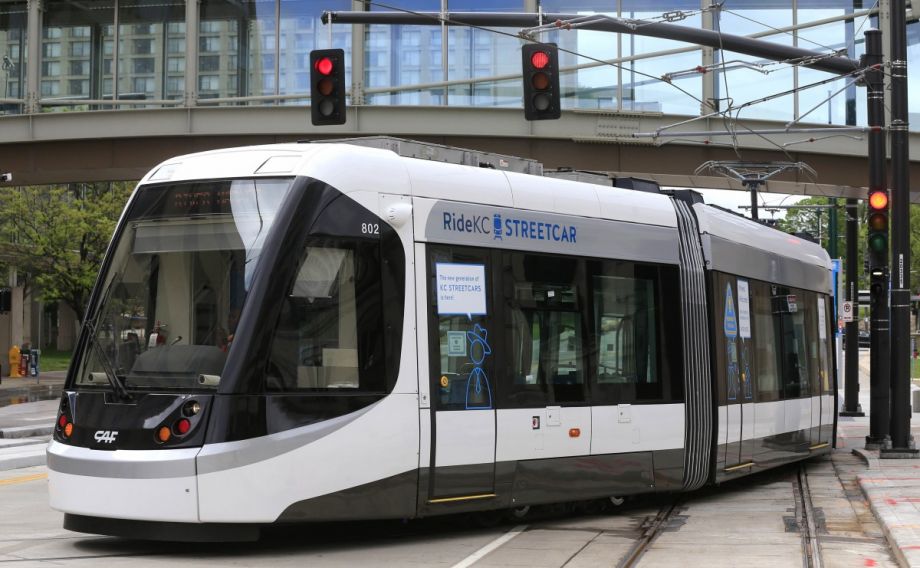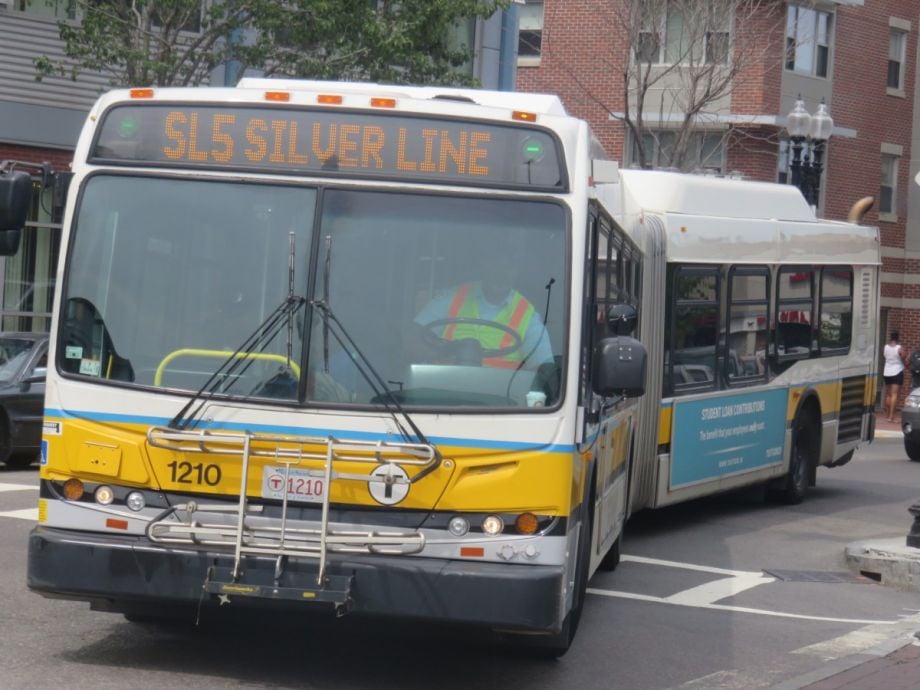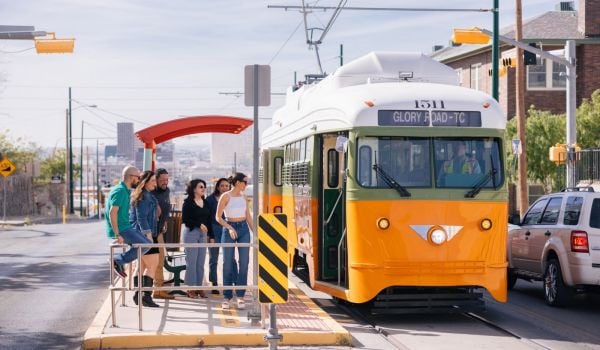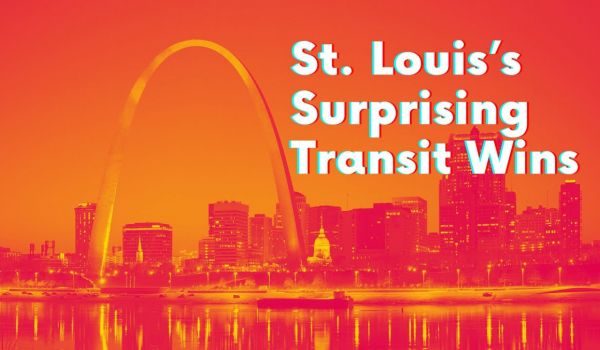Our weekly “New Starts” roundup of new and newsworthy transportation projects worldwide.
Private Operator Seeks to Offer Overnight Transit Service to Bostonians
Bridj, the Boston-based startup company that offers flexible shuttle-style transit service in its hometown and Kansas City, is in talks with the Massachusetts Bay Transportation Authority that could lead to Boston rejoining the ranks of U.S. cities with 24-hour transit service, the Boston Herald reports.
The MBTA’s Fiscal Management and Control Board heard a preliminary proposal from Bridj on Oct. 31 for on-demand late-night shuttle bus service that would run outside the MBTA’s current system hours. The service would operate the same way the private company’s daytime shuttles work: Riders enter their current location and desired destination in an app, and Bridj finds pickup and drop-off locations within a 7-minute walk of where they are and where they’re going.
The service would be operated under a “public utility model” in which the T would set fares and pay Bridj for running its 14-passenger shuttle vans on a per-vehicle, per-hour basis. MBTA Acting General Manager Brian Shortsleeve said the agency would most likely begin with a pilot program before rolling the service out system-wide.
Shortsleeve said that an initial service consisting of 10 vans operating five hours a night every night, with the T paying Bridj $85 per vehicle per hour, would cost $1.55 million annually, some of which would be covered by fares. The $85 per vehicle-hour figure is about 35 percent below the $132 it would cost to run a standard MBTA bus for one hour and is only slightly higher than the $83 per vehicle-hour the MBTA pays the operator of its contract bus service in Winthrop. Previous MBTA efforts to operate overnight service itself have proved unsuccessful, but Fiscal Management and Control Board member Monica Tibbits-Nutt told the State House News Service that riders and advocacy groups have made it clear that they want overnight transit service in Greater Boston.
The unanswered question, which will most likely be answered when Bridj submits a more detailed proposal: Who will pick up the difference between fares and operating costs? Shortsleeve has been charged by Gov. Charlie Baker with closing a $100 million operating deficit for the service the T currently provides.
OKC Streetcar Construction Bids Come In Under Budget
The news from Oklahoma City should give the folks in City Hall cause to smile: The three bids it received for building its planned downtown streetcar line all came in under the city’s cost estimate of $57.2 million.
Kansas City streetcar (AP Photo/Orlin Wagner)
The project will involve laying 4.9 miles of track in city streets, building nearly 24 boarding platforms and constructing the power substations and distribution system.
Work on the line should begin almost immediately once the city awards a contract and end with its opening in 2018. When complete, there will be two routes: a 4.6-mile main line connecting the MAPS 3 convention center with midtown and Bricktown via downtown Oklahoma City, and a 2.3-mile loop that will serve the convention center district, Chesapeake Arena and the heart of the Bricktown entertainment district. OKC officials hope to replicate the success of Kansas City’s starter line with the new service. The $131 million project is being financed by a 1-cent sales tax city voters approved in 2009.
Utrecht to Convert Fast Tram Line to Light Rail
As the Nieuwegein/IJsselstein Fast Tram line (SUNIJ) in Utrecht reaches the point where it needs to be renewed, officials in the Netherlands’ Utrecht Province are preparing to convert it into a conventional LRT line worked by low-floor LRVs, the International Railway Journal reports.
The conversion, which would be complete by 2020, will also make the line compatible with a new LRT line being built from Utrecht Central Station to the University of Utrecht campus that’s set to open in 2018. SUNIJ and the new Uithof Line will meet at Utrecht Central.
SUNIJ’s first section opened in 1983, and modernization of part of the line has already taken place. The conversion project would make the current high-platform service compatible with the low-floor Uithof Line and allow the latter’s 75-meter (246.1-foot)-long trains to operate through to the end of the SUNIJ line.
An additional 22 CAF Urbos LRVs will be tacked onto the existing 27-vehicle order for the Uithof Line as part of the project. The total cost of the reconstruction is estimated to be €141 million ($155.45 million U.S.).
The Uithof Line is projected to add 35,000 daily riders to Utrecht’s rail transit network when it opens in 2018, with the figure rising to 45,000 by 2020. Ridership on SUNIJ is also expected to increase as a result of the new through connection to the university campus.
The provincial council announced preliminary approval of the plan on Oct. 28 and is slated to consider the full proposal on Dec. 12.
Know of a project that should be featured in this column? Send a Tweet with links to @MarketStEl using the hashtag #newstarts.

Next City contributor Sandy Smith is the home and real estate editor at Philadelphia magazine. Over the years, his work has appeared in Hidden City Philadelphia, the Philadelphia Inquirer and other local and regional publications. His interest in cities stretches back to his youth in Kansas City, and his career in journalism and media relations extends back that far as well.
Follow Sandy .(JavaScript must be enabled to view this email address)











